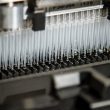Are you someone who hits the gym regularly but overlooks the significance of post-workout nutrition? Well, it’s time to give your body the love and attention it deserves! Your muscles work hard during a workout, and they need proper nourishment to recover efficiently. In this blog post, we’ll dive into why post-workout nutrition is essential for optimal recovery and share some easy tips for fueling your body effectively. So let’s get started!
The Three Phases of Post-Workout Nutrition
The first phase of post-workout nutrition is the anabolic phase, which lasts for up to two hours after your workout. This is when your body is most receptive to nutrients and it’s important to replenish your glycogen stores and start the repair process of your muscles. A snack or meal that contains both carbohydrates and protein is ideal during this time.
The second phase is the anti-catabolic phase, which lasts for up to four hours after your workout. This is when your body starts to break down muscle tissue for energy. To prevent this from happening, it’s important to consume a meal or snack that contains protein and fat.
The third and final phase is the recovery phase, which lasts for up to 24 hours after your workout. During this time, your body is working hard to repair muscle tissue and replenish glycogen stores. Consuming a meal or snack that contains carbohydrates, protein, and fat will help optimize recovery during this phase.
The Science Behind Post-Workout Nutrition
It is well-known that exercise depletes the body of energy stores and nutrients. What is less well-known, however, is the importance of replenishing these stores and nutrients in order to optimize recovery and prevent injury. Post-workout nutrition is therefore a crucial part of any exercise routine.
There are three main types of nutrients that need to be replaced after a workout: carbohydrates, proteins, and electrolytes. Carbohydrates are the body’s primary source of energy, and so it is important to consume them in order to replenish energy stores. Proteins are necessary for muscle repair and growth, so they must be consumed in order to promote recovery. Electrolytes are minerals that maintain fluid balance in the body; they are lost through sweat and must be replaced in order to prevent dehydration.
The timing of post-workout nutrition is also important. It is best to consume carbohydrates and proteins within 30 minutes of finishing a workout, in order to jumpstart the repair process. This window of time is known as the “glycogen window” or “anabolic window.” Eating a balanced meal containing all three types of nutrients within this timeframe will optimize recovery and help prepare your body for your next workout.
The Benefits of Post-Workout Nutrition
The benefits of post-workout nutrition are numerous. By fueling your body with the proper nutrients after a workout, you can help to:
-Speed up recovery time
-Reduce muscle soreness
-Build and repair muscles
-Refuel energy stores
– boost immune function
What to Eat After a Workout?
Your body needs the right mix of nutrients to repair muscle tissue, replenish energy stores, and reduce inflammation after a workout. The best post-workout foods are those that contain a balance of carbohydrates, protein, and healthy fats.
Some great options include:
Whole grain toast with peanut butter and banana
Greek yogurt with berries and honey
Oatmeal with almond milk and chia seeds
A protein shake with fruit or vegetables
A turkey sandwich on whole wheat bread
Salmon with quinoa and steamed vegetables
Conclusion
Post-workout nutrition is crucial for helping your body recover from the stresses of a workout and fueling your muscles so you can perform optimally. For best results, it’s important to incorporate a balanced combination of carbohydrates, proteins, and fats into your post-workout meal. While there are many ways to do this, it’s important to make sure that you’re consuming enough calories and nutrients to support muscle building and recovery efforts. By adhering these tips before and after exercise sessions, you’ll be able to maximize performance while maintaining good health.












